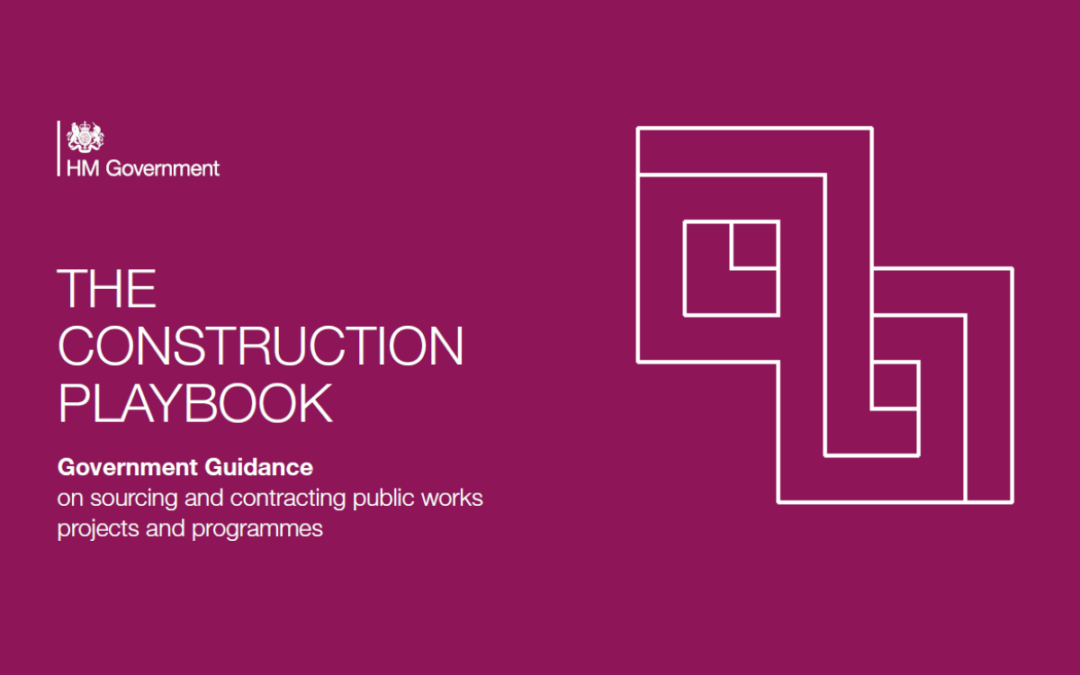
by Clair Mooney | Sep 20, 2022 | Main News Feed
In recent months FIS has been working with SFG20 to help improve access to guidance and support clients and facilities companies who need to maintain and manage Operable Walls.
Operating walls is commonly the responsibility of a member of staff or a maintenance crew and damage and undue wear can be caused through not fully understanding and following the operating procedure. Incorrect maintenance, such as applying grease to moving parts, can also create problems. A good service and maintenance regime, underwritten by a service agreement is therefore key to the wall’s serviceability and the welfare of those operating them. It is also a necessity to meet the requirements of any warranty and optimise service life.
In the summer FIS launched a new guide to the repair and maintenance of operable walls. To ensure that this guidance is circulated to the widest possible audience FIS met with SFG20 to look at how the two organisations could collaborate to share the information with the widest possible audience. The result is that the new guidance has been integrated into the scope of the SFG20 schedule for operable walls.
Originally launched in 1990, SFG20 is a subsidiary of the Building Engineering Services Association (BESA). SFG20 is a unique, mobile-enabled, maintenance system designed to support anyone who owns or manages facilities. Built around the maintenance industry’s standard, SFG20’s solution provides asset maintenance requirements in a simple and easily-digestible format, with a host of specialist tools available to support the application to assets as well as projective cost modelling.
Commenting on the collaboration, FIS Technical Director Joe Cilia stated:
“When you see the scope of content covered by SFG20 it gives a unique insight into the complexity of the FM world. It is great that we can collaborate with the team at SFG20 to ensure we aren’t producing information in a vacuum but making sure it is available and accessible to the people who have used it”.
Andi Connelly Horsley – SFG20 Technical Publications Lead, responded:
“FIS is an authority in this area and a critical source of information. We value our good working relationship with FIS and will continue to work together to help support the wider FM market in ensuring that their interior systems are maintained and managed appropriately”.
New content is now available in SFG20 maintenance schedule, 88-50 Operable Walls.
For more information on SFG20 click here
To access the FIS Guide to the Serving and Maintenance of Operable Walls click here.

by Clair Mooney | Sep 19, 2022 | Main News Feed
FIS is delighted to announce the Mayor of the West Midlands Combined Authority is attending our Regional Conference in Birmingham on 19 October as a keynote speaker.
Andrew Street CBE is a British businessman and Conservative Party politician who was the managing director of John Lewis from 2007 to 2016, when he resigned to run for Mayor of the West Midlands. He won the May 2017 mayoral election and was re-elected in 2021.
Starting on the John Lewis graduate scheme, Andy rose through the ranks to become managing director, overseeing one of the most successful periods in the company’s history.
He was also chair of the Greater Birmingham & Solihull Local Enterprise Partnership (GBSLEP) between 2011 and 2016, helping to build the relationships that have underpinned the economic growth of the region.
Additionally, he has been lead non-executive director for the Department for Communities and Local Government as well as a member of the Prime Minister’s Business Advisory Group.
In June 2015, Andy was awarded the CBE for services to the national economy. He was named ‘Most Admired Leader’ by business magazine, Management Today in 2014 and received the ‘President’s award’ from the Greater Birmingham Chambers of Commerce for his work in the region. He holds three honorary degrees from Birmingham City University, Aston University and the University of Birmingham.
FIS CEO Iain McIlwee commented:
“It is great to get the Mayor along to talk to our community about prospects and pipeline in the region and also a great opportunity to help him to see our sector and the amazing work that is done across the region. Andy will be joined by other experts speakers helping us to look at pipeline, compliance and how the sector is changing. This is one of a number of Regional Events taking place across the UK, starting with our AGM on 6th October”
You can book your place at the FIS Regional Event in Birmingham here.
The FIS AGM is taking place on 6 October and is featuring contributions from Peter Rogers CBE, co-founder of Stanhope, founder-Chairman of the UK Green Building Council and developer of complex projects such as Broadgate and 22 Bishopsgate.
Programmes for Manchester (9 November) and Scotland (1 December) are to be announced in the coming weeks.

by Clair Mooney | Sep 14, 2022 | Main News Feed
As the nation enters a period of national mourning, arrangements are being made for our late Queen’s funeral. King Charles has made an order that the day of the Queen’s funeral will be a bank holiday. Whilst employers will want to make their own decisions about how to mark the occasion, it is important to also consider what rights employees have in relation to this additional bank holiday.
Citation has provide guidance for FIS members on employees rights to the extra bank holiday.

by Clair Mooney | Sep 13, 2022 | Building Safety Act
CROSS has issued a report associated with missing fixing straps on Light Gauge Steel Framing Systems which may affect fire performance. This report references guidance issued by FIS earlier in the summer.
CROSS (Collaborative Reporting for Safer Structures) is a unique reporting scheme sponsored by The Institution of Structural Engineers, the ICE, the IFE, and the HSE. Its purpose is to share lessons learned from structural and fire safety issues and help prevent future failures – by providing insight into how safety issues occur and spurring the development of safety improvement measures. All information available through CROSS is free.
Under the new Building Safety Act the Building Safety Regulator is required to appoint a person to establish and operate a system for the voluntary reporting of information about building safety. This function is currently being fulfilled through CROSS, which has been extended to include fire safety, in addition to structural safety, within its remit. Reporting through CROSS is confidential.
FIS Technical Director Joe Cilia commented: “CROSS perform a vital role in this new era for safety. We cannot afford to bury concerns, we all have a responsibility to ensure that we share vital information to help ensure that mistakes are not buried in projects, but learnings shared help improve our wider deliver of safer buildings. We look forward to working more closely with CROSS in improving safety in our sector and the wider built environment”.
Full details of the alert are available here.

by Clair Mooney | Sep 12, 2022 | Market data
The latest weekly update from CPA is available to members here. The updated issues are in Pages 1-6 of the weekly update whilst subsequent pages have existing data and information that remain relevant. This update includes:
- UK Government Energy Price Guarantee (September 2022)
- S&P Global/CIPS UK Construction PMI (August 2022)
- ONS Building Materials Prices (July 2022)
- Barratt Developments Annual Results (September 2022)
- Vistry Group Half-year Results (September 2022)

by Clair Mooney | Sep 9, 2022 | Main News Feed
The following guidance has been prepared by the Construction Leadership Council to support the construction sector following the tragic passing of Her Majesty Queen Elizabeth II.
https://www.constructionleadershipcouncil.co.uk/news/clc-guidance-on-the-passing-of-her-majesty-queen-elizabeth-ii/

by Clair Mooney | Sep 9, 2022 | Main News Feed
Following the sad news of Her Majesty Queen Elizabeth II’s death, the CLC has this morning written to His Majesty The King and The Royal Household, to express condolences on behalf of the industry.
A copy of the letter is below, and is also available on the CLC website
The Private Secretary to His Majesty The King
Buckingham Palace
London SW1A 1AA
09.09.22
I write to you as the Industry Co-Chair of the Construction Leadership Council to offer condolences on behalf of our sector following the announcement of the death of Queen Elizabeth II.
In a lifetime of public service, Her Majesty dedicated herself to the people of the United Kingdom and the Commonwealth. Her selfless commitment to duty was reflected in the admiration in which she was held, both here in the United Kingdom and globally. We know that for millions of people who work in our industry, Her Majesty will have been a central and consistent figure in their lives, a respected monarch whose legacy will inspire future generations.
Today, our thoughts are with the Royal Family and all others affected on this saddest of days.
Yours faithfully,

Mark Reynolds
Co-Chair
Construction Leadership Council

by Clair Mooney | Sep 8, 2022 | Building Safety Act, Insurance
Projects to tackle fire safety risks on high-rise residential buildings have been boosted by the publication of a new model insurance clause covering fire safety risks. The wording has been developed by the International Underwriting Association (IUA) and the Department for Levelling Up, Housing and Communities for use in work being completed under the government’s £4.5bn Building Safety Fund. It will help speed up the removal of unsafe cladding, encourage a greater safety culture within the construction industry and provide insurers with increased confidence in risk management processes employed by the construction sector.
The model clause is freely available for use by underwriters looking to provide professional indemnity insurance for building cladding remediation work. The Building Safety Fund was introduced in order to cover the cost of such refurbishment work on high rise residential blocks over 18m.
Levelling up Secretary, Greg Clarke said: “Our priority is making sure people’s homes are safe and that safety standards are high.
“Alongside our tough new regulatory regime, this new clause that has been developed with my department will help us do just that.
“We welcome the work of the IUA and the underwriters who are taking a proportionate approach to fire safety cover and I thank insurers in advance for using it.”
Chris Jones, IUA Director of Legal and Market Services, said:
“Our new model clause sets out a number of key risk management processes that will ensure work being carried out is conducted within recognised industry standards. This will help improve accountability for safety measures and foster an investment in quality construction.
“The market for construction professional indemnity insurance has been difficult in recent years, reflecting concerns about the potential for historic liabilities to develop into future claims following the Grenfell Tower tragedy. Each new risk must continue to be assessed on a risk-by-risk basis, of course, but the clause should provide underwriters with greater confidence to offer effective insurance solutions for future work.”
A survey of IUA members in September last year revealed a cautious willingness amongst IUA members to underwrite fire safety risks on new projects to remove defective cladding from high rises. Around two thirds of respondents stated they would provide a limited form of cover, whilst a further 4% were happy to offer unrestricted protection.
The poll was carried out by the IUA’s Construction Professional Lines Working Group which was established in 2019 to encourage greater engagement between insurers, government, regulators and construction firms.
Copies of the IUA Building Safety Fund Cladding and Fire Safety Limited Exclusion and Aggregation Clause are freely available to download at https://www.iua.co.uk/IUA_Member/Press/Press_Releases_2022/IUA_publishes_new_fire_safety_clause_for_high_rise_repairs.aspx
Any questions or comments related to this clause should be fed to Iain McIlwee, (iainmcilwee@thefis.org) who is representing the FIS Community on the Construction Leadership Council’s Insurance Working Group

by Clair Mooney | Sep 8, 2022 | Skills
An employer is able to apply for grants in respect of construction industry related training undertaken by:
- directly employed staff (including apprentices) on the payroll;
- sub-contractors (both net and gross-paid); and
- sole traders and partnerships.
Provided the individuals are working at the time of the training for the employer making the application and that CITB grant support has not already been received for the particular training and/or qualification. An employer may authorise third party training providers and/or colleges providing services to the employer to complete a grant application on their behalf. Where the employer so authorises, the responsibility to ensure that applications are made in accordance with the Grants Scheme terms and conditions and to repay any grants received as a result of an error by the third party remains with the employer. The employers construction industry levy payments must be up to date. If your allowing training or qualification assessment of your sub-contractors on your jobs or sites, regardless of how the training and/or qualification is being paid for find out what they are undertaking and claim the Employer grant.
To apply for grant, applicants should visit CITB’s website. The requirements specific to each grant type should be checked prior to submitting an application as some grants operate restrictions. If you are unsure please contact Marie Flinter 07799 903103 or email marieflinter@thefis.org

by Clair Mooney | Sep 8, 2022 | Main News Feed
Please consider if you are using, or think you might be using sealants and adhesives that contain diisocyanates (polyurethane based sealants) as you will need to do the following:
UK REACH legislation requires that operatives are trained prior to the use of diisocyanates.

by Clair Mooney | Sep 8, 2022 | Main News Feed
The Managing Price Inflation guidance produced by Build UK has been updated with information on whether a contract can be lawfully terminated if inflation makes it commercial unviable. It outlines the key considerations, including the circumstances giving rise to termination and consequences if that step is taken.

by Clair Mooney | Sep 8, 2022 | Main News Feed
With insolvency risk beginning to rival inflation as a threat to the industry, Director of KPMG’s Major Projects Advisory Team Joe Manning has outlined how to identify and respond to signs of insolvency in the supply chain. A combination of the following warning signs may indicate that a company on site is in distress:
- A high turnover of staff
- A general decrease in labour
- A slowdown in the progress of the works or the works not achieving project timescales or milestones
- Poor quality workmanship and/or an increase in defects
- Removal of plant, equipment and/or materials
KPMG has published a summary on preserving value under supply chain pressure which includes the measures that can be put in place to protect against insolvency and the steps that should be taken in the event that it occurs.

by Clair Mooney | Sep 8, 2022 | Main News Feed
The latest information from Builders’ Conference shows that 460 contracts worth £6.2 billion were awarded in August. Both the number and value of contracts were higher than the monthly average over the last year, which is particularly encouraging given that August is traditionally quieter due to the summer holidays. It was a strong month for the public sector, which accounted for 39% of all contracts awarded by value, including two prison contracts totalling £650 million and three water and sewage projects worth £505 million. In the private sector, there were 136 housing projects worth £1.9 billion (30%), 24 industrial projects totalling £326 million (5%), and 67 office projects worth £319 million (5%).
The number of tender opportunities was still 8% below the previous month and, with the new Prime Minister now in place, the industry will be hoping that continued investment in infrastructure together with a plan to deal with rising inflation will sustain activity for the rest of the year.

by Clair Mooney | Sep 8, 2022 | Skills
With construction needing to recruit over 53,000 new entrants every year to maintain output, Build UK has published the results of its latest survey of members to understand current levels of employment within the industry and the impact of job vacancies across the supply chain. ‘Increasing Employment in Construction’ reveals that 33% of respondents have increased their number of directly employed workers in the last 12 months, with 50% predicting an increase over the next year, which is being driven primarily by an increase in activity, followed by companies taking on more new entrants and apprentices.
68% of Build UK members confirmed they currently have vacancies, which is increasing pressure on existing teams and stifling business growth. To help recruit more new entrants into construction, Build UK will be focussing on improving the journey from education to employment, and will be reviewing the various ways that young people take their first step into the industry, including Apprenticeships, Traineeships, T Levels and Degrees.

by Clair Mooney | Sep 8, 2022 | Main News Feed, Sustainability
Eco-I North West is a practical, interactive project aimed at North West based SME’s that are starting their low-carbon innovation journey and are looking for opportunities and support to become a low-carbon business.
It is being run as two ‘in-person’ workshops held on campus at Manchester Met.
Dates: Wednesday 12 October 2022 & Wednesday 19 October 2022
Time: 10.00 to 16.00 (with lunch provided)
Location: The Salutation, 12 Higher Chatham Street, Manchester, M15 6ED (Part of Manchester Metropolitan University’s Campus).
Cost: For NW based SME’s the project is fully funded via ERDF.
What will be covered
During COP26 the UK Government announced plans for firms to show how they intend to hit net-zero. For those who have not engaged with the sustainability agenda before, or those who have looked at the scale of the challenge and wondered what they can do next to avoid the challenges of things like clean air bills and bans on red diesel fuel, this can feel like a daunting proposition.
On the 12th & 19th October, Manchester Metropolitan University are holding a two-day interactive workshop to help North West SMEs begin their sustainability journey through the development of long-term net-zero action plans, with a particular focus on innovation. The programme will cover: the basics of the climate emergency; understanding your business and its environmental impacts; identifying opportunities for innovation; and, how to develop pathways that can take businesses from current to next practice. Following the workshops, participating businesses will also have the opportunity to work closely with Manchester Met academics to implement innovations in their organisation through things like biofuels, hydrogen, 3D printing and more.
If you are interested in learning how your organisation can adapt to the threats and opportunities posed by the climate emergency and how it can not just survive, but thrive in a net-zero world, then you can register your interest and arrange an informal chat about the project, by completing the EOI form on the website ECO-I North West · Manchester Metropolitan University

by Clair Mooney | Sep 6, 2022 | Sustainability, Transformation
The Cabinet Office has now published the first revision of the Construction Playbook. The Playbook captures commercial best practices and specific sector reforms outlining the government’s expectations of how contracting authorities and suppliers, including the supply chain, should engage with each other.
These are set out in 14 key policies for how the government should assess, procure and deliver public works projects and programmes which all central government departments and their arms length bodies are expected to follow on a ‘comply or explain’ basis.
This is the culmination of 6 months work, which has involved people from across Whitehall and the construction sector, and to which BEIS has made a significant contribution, particularly in relation to the enhanced content in the Playbook and associated guidance on net zero carbon and environmental performance as a key component of a strategic approach to ensuring the sustainability of infrastructure and construction projects. The key points about the substance of these changes are:
- a clearer statement that whole life carbon assessments should be undertaken for all HMG construction projects and programmes, and that these should be consistent with strategic organisational objectives for decarbonising estates and improving carbon performance;
- further guidance on what action contracting authorities should be undertaking at each stage of the process for implementing these projects, from market engagement through to handover and operation, to deliver improved carbon outcomes, with an emphasis on benchmarking, monitoring and reporting these;
- pointing contracting authorities to a much wider range of external resources (toolkits, advice and guidance, promoting the circular economy and contractual clauses – the CIH Value Toolkit is regularly referenced, and we also cite Construct Zero in the Guidance Note) to support their efforts and enable them to embed a more comprehensive approach;
- incorporation of the need to address the provisions of the Environment Act 2021 (e.g. biodiversity net gain), and also emphasising the importance of wider considerations such as air and water quality; and
- additional and comprehensive guidance on Net Zero and Sustainability, including a set of case studies of best practice. We highly recommend the Foleshill Health Centre one as an example of what can be achieved – but we have also managed to include case studies from HS2, the Environment Agency, and also the product platform developed through the TCC with CIH involvement.
Comment of the revised launch of the Construction Playbook FIS CEO, Iain McIlwee stated:
“The Construction Playbook sets its stall out in the first line – the focus is getting projects and programmes right from the start. Nothing really is more important than this, as per our own research on procurment – the best form of dispute resolution is effective procurement in the first place. It is imperitive as the biggest client of construction in the UK that Government is an exemplar client and that the principles outlined in here extend to the wider public sector procurement and into institutional investors.”
The revised version of the Construction Playbook, together with associated documents is available here.
Details of FIS Research into Procurement is available here.

by Clair Mooney | Sep 6, 2022 | Contractual and Legal, Main News Feed
The second in our series of short blogs by FIS Consultant, Len Bunton on contractual and commercial issues he experiences when supporting FIS members and the wider community – it is designed to help FIS Members avoid common traps and build on our focus on collective experience.
My phone is ringing a lot just now with clients saying – “we need help as we are not getting paid.” Is that going to improve, and I would say no in the current market conditions. What business in the construction industry need to do is to become much more focused, and commercially smarter in dealing with the financial aspects of their projects.
So here are a few suggestions…

by Clair Mooney | Sep 6, 2022 | Sustainability
Given the need to focus all efforts on reducing the cost of energy, SME’s are reminded that they can get a free copy of the standard BSI ISO 50005 on energy management.
The aim of the guide is to help SMEs with their decarbonisation journey, and BEIS in a practical gesture, has sponsored 100,000 free copies of the BS ISO 50005 standard which is targeted at SMEs to help them “to develop a practical, low cost-approach to energy management to reduce energy consumption, energy bills and greenhouse gas emissions”.
Energy management systems are systematic tools that support businesses in managing their energy usage. The BS ISO 50005 standard is designed for SMEs through a phased/staged implementation approach to make it manageable for SMEs with small resource and capacity.
You can download your free copy here.

by Clair Mooney | Sep 6, 2022 | CSCS
CSCS has updated its user guide for employers making applications on behalf of their workforce. Designed to make applications quicker and easier, the new guidance is available to download for free and includes information on registering applicants, uploading employee qualifications and adding CITB Health, safety and environment test details.
The guidance also includes the following:
- Lost and replacement cards
- Signing into your account
- Types of application
- Card dispatch addresses
- Useful hints and tips to save you time and effort
Download the new updated guidance free via the CSCS website.

by Clair Mooney | Sep 5, 2022 | Skills
Now pupils are heading back to school and those who left in June or July follow their post school dreams there is going to be a number of young people who are undecided, back into education, further education linked to an occupation, employment or an apprenticeship. If you are looking to increase your workforce the pool of undecided could be an opportunity.
When you embark on the quest to recruit it is worth considering what qualification options there are available for your new employees. FIS have 34 Training Provider members up and down the country offering training, qualifications and apprenticeships from the trades to senior management take a look at FIS Training Directory for a fellow member in your area, some of these training organisations operate nationally and will deliver the necessary training onsite.
Vocational qualifications are the main stay of the sector but are more suited to experienced workers unless preceded by a formal training programme leading to a recognised national qualification, as they are in the apprenticeship frameworks for Scotland and Wales. Individuals learn the skills and knowledge in a training environment and apply these in the workplace to develop the appropriate attitude and gain experience.
For apprenticeships in England FIS members deliver training for the following trade options:
- Plasterer
- Option 1 – Solid
- Option 2 – Fibrous
- Interior Systems installer
- Option 1 – Dryliner
- Option 2 – Ceilings and Partitions Installer
Take a look and download a copy of the FIS Apprentice – Guidance for Employers. If you need any assistance to source training or qualifications call FIS on 0121 707 0077 or email info@thefis.org.



















